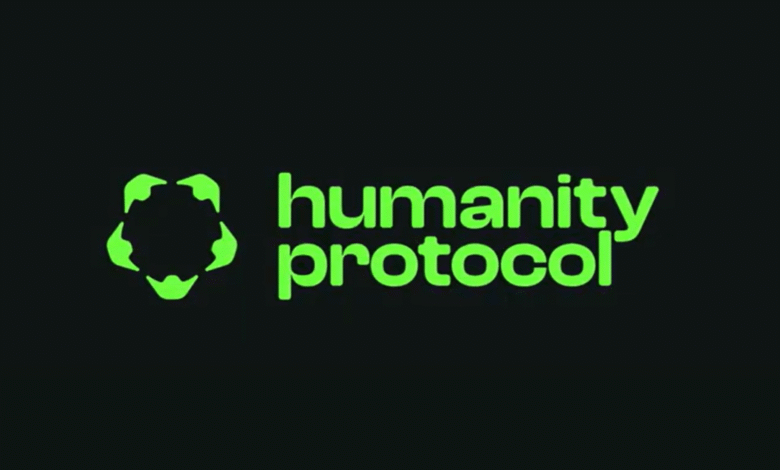Humanity Protocol: Launching a Privacy-First Identity System

Humanity Protocol has taken a significant step forward with the launch of its mainnet, setting the stage for a revolutionary approach to digital identity. This innovative platform leverages biometric ID to create a seamless link between conventional Web2 credentials and the decentralized realm of Web3 services through advanced zero-knowledge security measures. Users can now verify sensitive information, such as academic degrees and employment history, without compromising their privacy. This groundbreaking solution not only enhances trust in digital transactions but also enables a more connected experience across various platforms. With key partnerships from major airlines and hotel chains, Humanity Protocol is poised to redefine how we interact with our identities in a secure and privacy-first manner.
With the introduction of Humanity Protocol’s mainnet, the concept of decentralized identity is gaining traction in the digital landscape. This platform combines biometric identification with innovative security technologies, enabling users to control their personal data more effectively. The integration of zero-knowledge proof ensures that individuals can authenticate their credentials without revealing unnecessary information, safeguarding their privacy. As we explore this advanced infrastructure, the potential for creating robust online reputations and sybil-resistant systems becomes increasingly evident. Humanity Protocol represents a crucial step towards a future where individuals have greater autonomy over their digital identities.
What is Humanity Protocol and Its Mainnet Launch?
Humanity Protocol is a groundbreaking biometric ID platform that has recently launched its mainnet, marking a significant advancement in the realm of digital identities. This innovative platform aims to bridge the gap between traditional Web2 credentials and the emerging decentralized Web3 services. With its central focus on privacy-first identity solutions, Humanity Protocol leverages advanced technologies to empower users with the ability to control their personal data while maintaining its integrity during verifications.
The functionality of the Humanity Protocol’s mainnet lies in its use of zero-knowledge Transport Layer Security (zkTLS), which allows users to authenticate their credentials—such as job titles or educational qualifications—without revealing sensitive information. This secure method of verification is becoming ever more critical as the world shifts towards a more decentralized digital landscape. By integrating already recognized loyalty programs from major airlines and hotels, the platform creates a seamless transitional experience for users, establishing a portable reputation that works across multiple applications.
Enhancing Privacy-First Digital Identity with Biometric Technology
The cornerstone of Humanity Protocol’s approach is its dedication to enhancing privacy-first digital identity through biometric technology. Biometric ID becomes increasingly relevant as users seek secure methods to authenticate themselves online while protecting their personal information. The platform’s ability to tie biometric identifiers to digital credentials allows users to prove who they are without the constant exposure of their private data. This dual-layer protection is essential for users who are wary of data breaches and privacy violations.
As concerns surrounding data privacy continue to grow, Humanity Protocol addresses these issues head-on by providing a solution that empowers users through decentralized identity mechanisms. By ensuring that biometric data never leaves the user’s device, the protocol maintains a high standard of security, allowing for a trustworthy verification process linked to Web3 services. This focus on security not only increases user confidence in the system but also sets a precedent for future innovations in privacy-first identity solutions.
The Role of Zero-Knowledge Security in Decentralized Identity
A pivotal feature of Humanity Protocol is the implementation of zero-knowledge security, which plays a crucial role in enhancing the integrity of decentralized identity solutions. This form of cryptographic verification enables users to validate their credentials without disclosing the underlying information to the network. This mechanism is particularly important in the context of Web3 services, where trust and security are paramount. Zero-knowledge security ensures that even while authenticating their identity, users can maintain full control over their valuable personal data.
By employing zero-knowledge proofs, Humanity Protocol not only safeguards user information but also fosters a more transparent ecosystem for identity verification. This approach minimizes the risk of data fraud and identity theft, which are rampant in traditional online systems. Users can authenticate their identity across various platforms without the fear of their private information being compromised, thus promoting a safer decentralized landscape where privacy is prioritized.
Connecting Web2 Credentials with Web3 Services
Humanity Protocol’s mainnet launch introduces a crucial innovation by connecting Web2 credentials with decentralized Web3 services. This integration allows users to link their existing accounts—such as frequent-flyer programs and loyalty points from established brands like Delta and Marriott—with their digital identity on the Humanity Protocol platform. As users migrate to a more decentralized landscape, the ability to utilize their established credentials ensures a smoother transition and greater acceptance of decentralized identity solutions.
The fusion of Web2 and Web3 services through Humanity Protocol not only makes identity verification more convenient for users but also creates new opportunities for developers. By utilizing this unified identity layer, developers can build sybil-resistant social platforms and reputation-based marketplaces, which leverage user credentials safely and effectively. This evolution not only enhances the user experience but also forms a foundation for more innovative and trust-driven online interactions.
Portable Reputation Across Digital Platforms
One of the standout features of the Humanity Protocol platform is its ability to create a portable reputation for users across both Web2 and Web3 applications. By linking various loyalty accounts and digital identities, users can establish a consistent and verifiable reputation that travels with them across different digital environments. This is particularly advantageous in the decentralized ecosystem, where trust and reputation play a pivotal role in user interactions.
A portable reputation allows users to engage in various online communities and marketplaces with assurance, knowing that their credentials are validated by a secure and privacy-centric protocol. This could revolutionize how individuals connect and transact in the digital space, paving the way for a more unified and trustworthy online presence. As Humanity Protocol continues to innovate, the potential for portable reputation to enhance user engagement and trust in digital platforms becomes increasingly tangible.
Opportunities for Developers: Sybil-Resistant Social Platforms
Humanity Protocol’s mainnet provides a rich vein of opportunities for developers interested in creating sybil-resistant social platforms. With its secure verification methods and focus on privacy-first identity, developers can build applications that ensure authentic interactions among users. By utilizing the capabilities of the Humanity Protocol, developers can create social ecosystems resistant to false identities and data manipulation.
This advancement has the potential to transform online social interactions, offering a climate of trust that encourages genuine engagement. As developers harness the power of decentralized identity solutions, they can architecture platforms that not only prioritize user privacy but also foster real connections among users, shifting the paradigm of how online communities operate.
The Future of Digital Identity with Humanity Protocol
The future of digital identity is rapidly evolving with the advancements presented by Humanity Protocol. As the platform continues to gain traction and expand its user base, it will likely set new standards for how identities are verified online. With its unique approach to integrating biometric ID, zero-knowledge security, and decentralized identity practices, Humanity Protocol is leading the charge toward a more secure and private digital environment.
As humanity increasingly embraces decentralized technologies and privacy-first frameworks, the solutions offered by Humanity Protocol could serve as blueprints for future identity systems. By prioritizing the user’s control over their data and enhancing the capacity for portable credentials, organizations can envision a landscape where digital identities are not only secure but foster trust among users across various platforms.
Transforming the Digital Ecosystem: The Impact of Humanity Protocol
The introduction of Humanity Protocol’s mainnet signifies a transformative moment in the digital identity ecosystem. By creating a decentralized framework that connects users with secure Web3 services, the protocols offer innovative solutions to ongoing concerns about data privacy and identity verification. This shift is crucial as more individuals seek to navigate the growing landscape of online interactions and transactions in a manner that protects their personal information.
The lasting impact of Humanity Protocol will be seen in how individuals approach their digital identities. As the platform attracts more users and developers, it encourages a significant cultural shift towards prioritizing privacy and security. The adoption of such protocols could redefine online trust and accountability, ultimately shaping a future where individuals are empowered to manage their digital footprints responsibly.
Privacy-First Identity: A New Standard in Digital Verification
With the emergence of Humanity Protocol, privacy-first identity is set to become the new standard in digital verification. The platform stands at the forefront of addressing contemporary privacy concerns by allowing users to verify their identities through biometric ID methods without sacrificing personal data security. This functionality is becoming increasingly vital as digital interactions become more prevalent and sophisticated.
By emphasizing privacy-first methodologies, Humanity Protocol not only delivers enhanced security measures but also promotes a culture of consent and personal authority over individual data. For users, this shift could significantly increase their trust in digital identity services, paving the way for broader acceptance of decentralized identity mechanisms across industries. The commitment to a privacy-first framework represents a strategic evolution in how we think about and manage our identities in an increasingly digital world.
Frequently Asked Questions
What is Humanity Protocol, and how does it relate to decentralized identity?
Humanity Protocol is a biometric ID platform that recently launched its mainnet, focusing on creating a privacy-first digital identity solution. It connects users’ Web2 credentials with decentralized Web3 services, allowing for secure and private identity verification through zero-knowledge technology.
How does the biometric ID feature of Humanity Protocol enhance user privacy?
The biometric ID feature of Humanity Protocol utilizes zero-knowledge security protocols to verify user credentials without revealing personal information. This ensures a privacy-first approach, allowing users to confirm their identities safely while maintaining control over their data.
In what ways can users connect their Web2 credentials using Humanity Protocol?
Users can link their Web2 credentials, such as frequent-flyer and loyalty accounts, to their Human ID on the Humanity Protocol platform. This feature enables the creation of a portable reputation across various applications in both Web2 and Web3 environments.
What are the benefits of using Humanity Protocol for identity verification?
Humanity Protocol provides a secure way to verify identities through decentralized identity methods. Key benefits include enhanced privacy with zero-knowledge security, the ability to connect multiple accounts seamlessly, and the establishment of a trustworthy reputation in decentralized applications.
Can developers create applications using Humanity Protocol?
Yes, developers can leverage Humanity Protocol’s infrastructure to build sybil-resistant social platforms and reputation-based marketplaces. This opens up numerous possibilities for creating innovative Web3 services focused on secure and private identity management.
What type of credentials can be verified using Humanity Protocol?
Users can verify various credentials, including job titles and university transcripts, through the Humanity Protocol. This capability allows individuals to present their qualifications without compromising personal data, aligning with the platform’s commitment to privacy-first identity solutions.
How does Humanity Protocol support Web3 services?
Humanity Protocol enhances Web3 services by enabling users to authenticate their identities securely and privately through a decentralized identity system. Its integration with biometic ID and zero-knowledge security ensures that personal data remains confidential while interacting with Web3 applications.
What is zero-knowledge security in the context of Humanity Protocol?
Zero-knowledge security, in the context of Humanity Protocol, refers to a cryptographic method that allows for the verification of information without disclosing any personal data. This technology is integral to the platform’s privacy-first identity approach, allowing users to confirm their credentials while protecting their identity.
How will the mainnet launch of Humanity Protocol impact travelers?
The mainnet launch of Humanity Protocol allows travelers to link their frequent-flyer and loyalty accounts to their Human ID. This integration creates a unified digital identity that facilitates easier interaction with travel-related services while ensuring privacy and security.
| Key Feature | Description | |
|---|---|---|
| Mainnet Launch | Official launch of the Humanity Protocol’s mainnet, establishing a secure framework for identity verification. | |
| Unified Identity Layer | Connects Web2 credentials (like social media accounts) with decentralized Web3 services using zero-knowledge Transport Layer Security (zkTLS). | |
| Privacy Preservation | Allows users to verify credentials (e.g., job titles, university transcripts) without disclosing personal information. | |
| Travel and Loyalty Integration | Enables linking of loyalty accounts from major airlines and hotels to the Human ID for a portable reputation across platforms. | |
| Developer Opportunities | Facilitates creation of sybil-resistant social platforms and reputation-based marketplaces. | |
| CEO’s Vision | Terence Kwok highlights the transformation of decentralized identity into practical infrastructure for user identity confirmation while ensuring privacy. | |
Summary
Humanity Protocol has launched its mainnet, marking a significant advancement in digital identity management. By integrating Web2 credentials with decentralized Web3 services while prioritizing user privacy, the Humanity Protocol sets a new standard for secure identity verification. This innovative approach not only streamlines access to services but also protects personal data, paving the way for more robust systems in both individual and commercial applications. The implications of this launch extend beyond just privacy, suggesting a future where decentralized identities can enhance convenience across various platforms.




